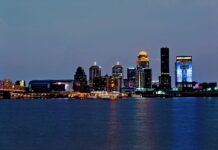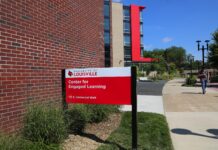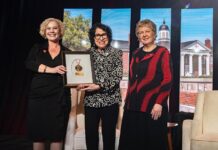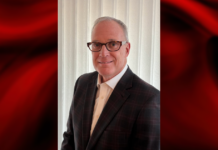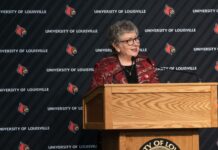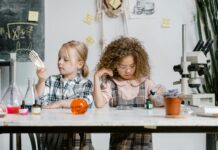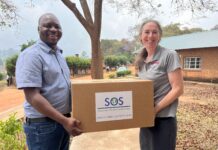These students were not paid and were not getting a grade for this service project. They all volunteered for the experience of learning about disaster relief and in return got so much more. These fantastic 12 students are Marcy Smith, Erin Young, Maddie Loney, Lana Jennings, Matt Gammons, Mark Jackson, Sherea McFarland, Latasha Richard, Taylor Dowdy, Tia Nicholas, Jerome Soldo, and Ji Son. As a faculty member I wanted to encourage critical thinking about this weeklong experience. The students met my challenge.
At the end of the first day of work on Monday, students were saying, “TV doesn’t show how bad it is here.” Their assumptions and beliefs were already being tested. Students began to ask questions of the individuals who we were helping and of the local community leaders. They learned about FEMA, wave surges and displacement. Students engaged in conversations that provided first-hand information about the realities of natural disasters. This community service project is strong evidence of the benefits of field learning experiences designed to promote critical thinking that cannot be applied in the classroom. Following are excerpts from reflections they wrote after their return to Louisville about the people they met, how they have been affected.
“We started the trip complete strangers and went through the entire process of a relationship. The first day was awkward, not knowing each other unsure what or who to talk to. The next step was working together. As we learned a little about one another we started to talk and that talk led to conversation while we were working. The conversation and tough work started to build relationships. By the third day we were a pretty good team and were laughing, crying, telling jokes and sharing some very serious thoughts and experiences relating to our lives.”
“Many people told me that after my trip to New Jersey I wouldn’t be the same. I wasn’t sure what they meant by that, and to be honest, it made me anxious about the trip. However, when I pulled into my driveway Saturday night, it was the same. My brick house stood there waiting. My dog greeted me at the door, dancing around and wagging her tail. Warmth hit me as I walked through my house. It was all the same. But they were right, and now I understand what they meant. My heart is not the same as it was when I climbed in the back of the van.”
“In particular, Chris stood out as a bright whirlwind of energy and connection, who opened up to our small group on Tuesday morning as we cleaned up her backyard. She kept offering us coffee, candy, lunch, and seemed completely overwhelmed by our ready ability to complete any task she needed help with.”
“Ms. Chris was one of the first people that we all feel in love with. As we were cleaning her backyard she constantly asked us if we wanted coffee, soda, or water. Her house used to be an African church back in the ’70s. Her main damage was to her back yard and her basement. She was so positive, even though her house was affected by the storm. Last year she lost her husband and this year she lost her sister two weeks after Hurricane Sandy and yet she’s still in good spirit. She didn’t seem to be worried.”
“At a woman named Joanne’s house, the guys tore out cabinets and did heavy lifting, while a couple of the girls cleaned the dirt off of her fine silver. Joanne could not stop raving about her clean silver! What she needed to see that afternoon was a restored possession that she valued, not her dilapidated kitchen being torn to pieces. “
“…. but what may have touched me even more, was working with the coordinators of the efforts. There were two main people that helped assign us jobs to do and provide us with tools and supplies to get the jobs done. Nancy was the volunteer coordinator that worked with us and every day she was at Boro Hall to assign us jobs and answer our questions. Brian, a financial analyst, has spent the last 60+ days coordinating recovery and relief efforts and heading up much of the physical construction work. These people before Sandy hit were living their regular lives and now have become heroes to the citizens of that town and to me.”
“One thing I have realized we need is more Brian’s and more Nancy’s. The efforts to get these towns back running and get the citizens what they need, require a lot of coordination and a lot of time.”
“This was changed when I helped carry out of a home everything a person owned to a curb, and then watched it get picked up and carried away. I peeled mold of items that someone cherished.”
“We walked into his home and the air smelled of mold and everything inside was ruined. We spent three hours clearing out literally his entire house and moving it to the street. By the end of the three hours there was nothing left in his house for him that he could use. The storm took everything from this man.”
“I feel like I’ve aged five years in one week. I don’t mean this in a bad way, but I feel like I have witnessed a new light on what is important in life. I got to work side-by-side with amazing students. I have never been so proud to attend University of Louisville, as we served Sea Bright, N.J.”
“She showed me that having material things is not relevant, and like all the people in New Jersey, it’s not important because it can be taken away. The real meaning of love in life is about helping others when you can.”
“Yet many people commented on our smiles every morning. This made me grow up and realize what to value in life.”
“The most memorable person for me was Richard, the director of a non-profit called Surfers Environmental Alliance. Although he didn’t visually see us working out in the community, he was so impressed by our group and our efforts. He was overjoyed to see us walking into Boro Hall, faces illuminated with huge smiles. To him, what we did wasn’t as important as how we did it — joyfully and without complaint.”
“We spent five days tearing up floors, removing debris, ripping out walls, throwing away mold-exposed items, and hauling everything we could to the curb. … Every person that we seemed to encounter expressed so much gratitude that a group of students from Louisville, Ky., would drive 13 hours and spend five days trying to help the town of Sea Bright. You could see the gratitude on their faces and often a small tear in their eyes.”
“… but also I had the opportunity to apply everything I’ve learned in one week. Our school can only prepare us to an extent, and then we must apply it. During the week, I was hoping for more opportunities for social work skills, yet I didn’t realize that so many skills that were applied. I just didn’t realize I was using them, because now they are a part of me.”
“I learned a little bit about disaster psychology, and I became interested in the organizational aspects of restoring a community after a tragedy. I am now inspired to do something different and abstract.”
“As I worked all week I realized that a lot of people take a lot for granted. After seeing the devastation there I realized that this could’ve happened to anyone. We all need to be thankful for what we have and not be so focused on what we do not have.”









